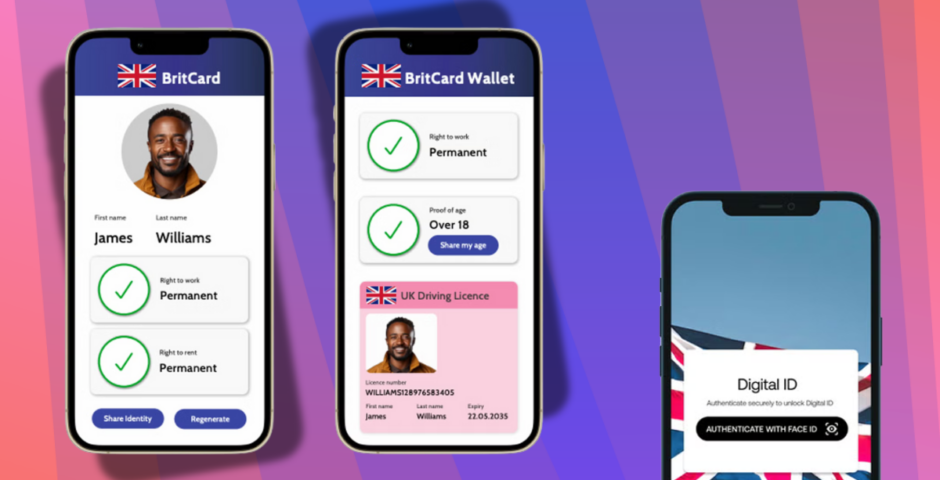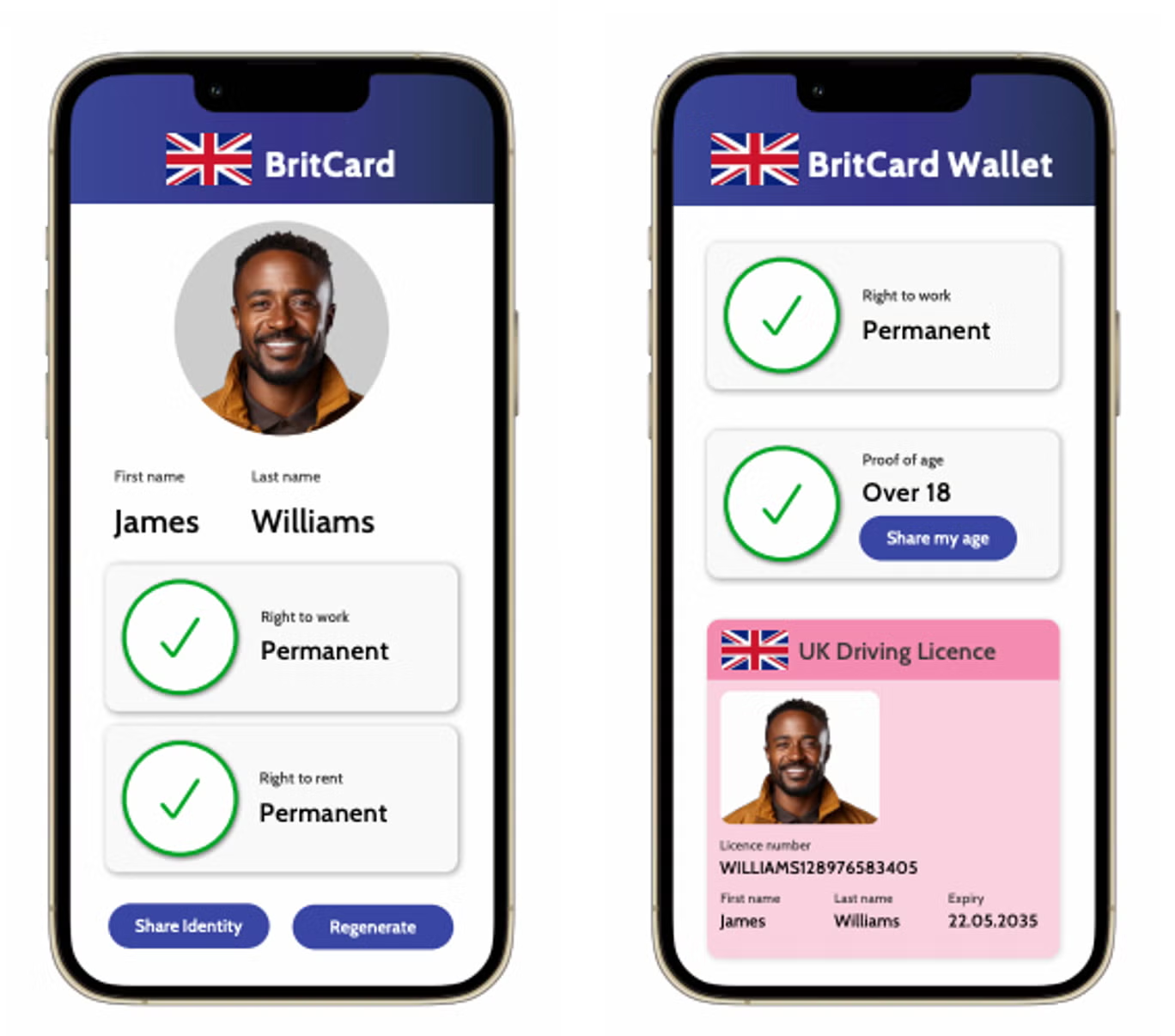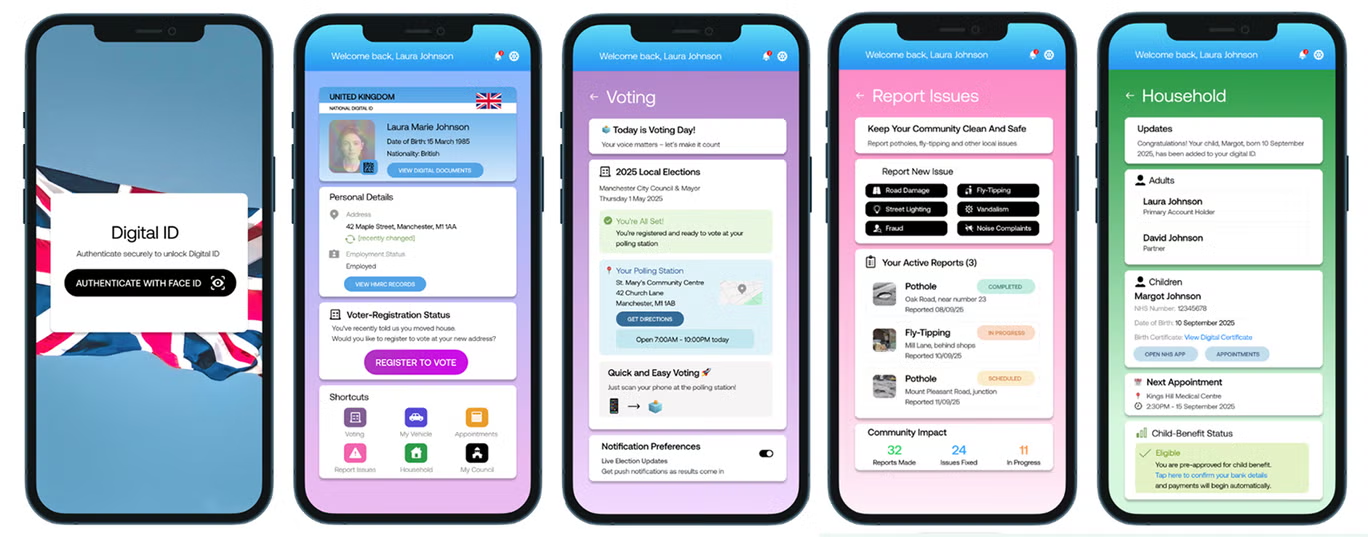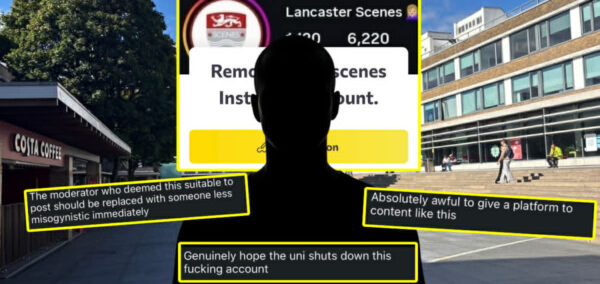
Half a million signatures and counting: Here’s exactly why so many people are against digital ID
It will soon be mandatory for all adults in the UK
More than half a million people in the UK have already signed a petition against the government’s plans for mandatory digital ID cards, and the number keeps climbing.
The scheme, nicknamed the “Brit card”, is being billed by Sir Keir Starmer’s government as a way to crack down on illegal migration and make it easier to prove your right to work or rent in the UK. But campaigners are calling it a step towards mass surveillance, and plenty of ordinary people aren’t convinced either.
So, what exactly is the digital ID?

via Labour Together
Think of it like a virtual ID card you download onto your phone. Just like you’d use Apple Pay or the NHS App, you’d be able to show a scannable credential that proves who you are and whether you have the right to live and work in the UK.
According to plans drawn up by Labour Together, the Brit card would:
- Be free to get if you have the legal right to be in the UK
- Work for British and Irish citizens, visa holders, and those with settled status
- Be checked by employers and landlords using a free app
- Automatically link back to the Home Office so the government can see who’s following the rules
If you don’t have a smartphone, you’d likely get a physical version instead.
Well, where would you use it?

via Tony Blair Institute
The government says the Brit card would become part of everyday life, a single way to prove your identity in all sorts of situations. That means:
- When getting a new job, employers would have to scan it before hiring you
- When renting a property, landlords would need to check it too
- When accessing public services, it could potentially be used like a passport or utility bill to prove who you are
Most Read
Basically, if you need to show you have the right to live and work in the UK, this card would be the default way to do it.
So, why are people against it?
A lot of people have said that it sounds less like a helpful shortcut and more like a slippery slope. Civil liberties groups argue that it could create a “papers please” culture where you’re constantly being asked to prove who you are. Also, older people or those who aren’t tech-savvy could struggle to access essential services. People have also raised concerns over storing so much personal data in one place, which would risk misuse, leaks, or hacking. Plus, it makes everyday life more controlled rather than freer.
Campaign group Big Brother Watch has warned it could be “uniquely harmful to privacy, equality and civil liberties.”
So, how can you also sign the petition
If you don’t like the sound of digital IDs, you’re not alone. A petition titled “Do not introduce digital ID cards” has already picked up more than 500,000 signatures. It argues that no one should be forced to register with a state-controlled ID system. And it calls the scheme “a step towards mass surveillance and digital control.”
You can read and sign the petition on the UK Government and Parliament petitions website or just click here. Any petition that reaches 100,000 signatures has to be considered for a debate in Parliament, and this one has smashed that number.
The government says digital IDs will make borders stronger and life simpler. But plenty of people see it as a risky experiment that could open the door to more surveillance.
For more like this, like The Tab on Facebook.




















